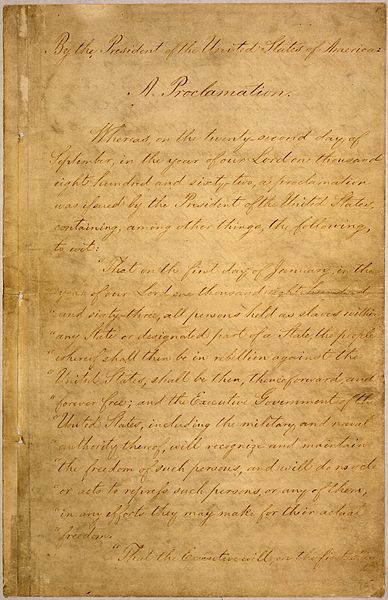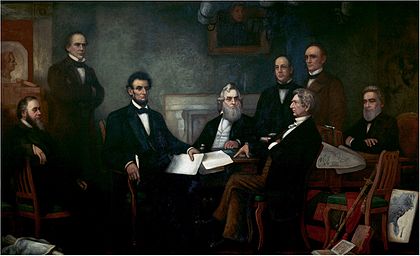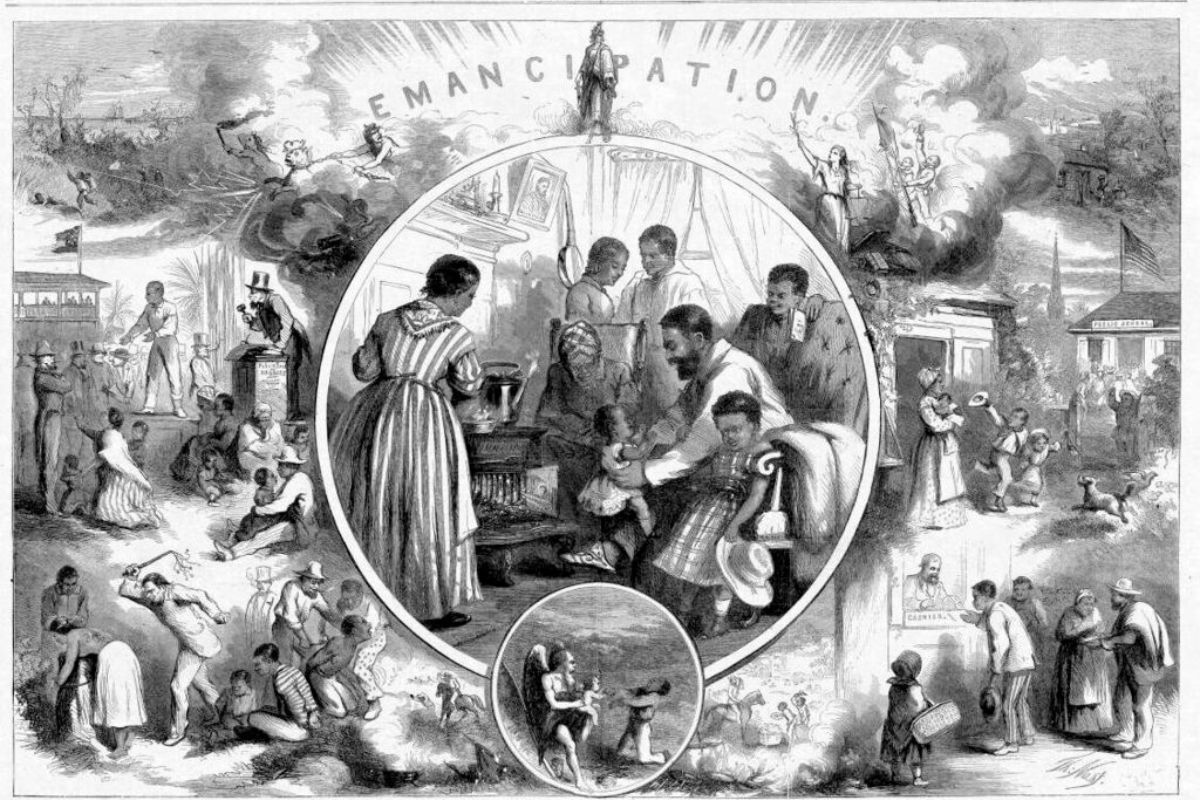The Emancipation Proclamation, issued by President Abraham Lincoln on January 1, 1863, during the American Civil War, is a historic document that declared the freedom of enslaved people in Confederate-held territory.
While it did not immediately free any enslaved individuals, it marked a pivotal moment in the fight against slavery and had significant implications for the outcome of the war.
The proclamation aimed to weaken the Confederacy by depriving it of slave labor and served as a catalyst for the eventual passage of the Thirteenth Amendment, which abolished slavery throughout the United States.
Despite its limitations and criticisms, the Emancipation Proclamation remains a crucial milestone in American history, symbolizing the ongoing struggle for equality and justice.
Emancipation Proclamation Facts
1. The Emancipation Proclamation was issued by President Abraham Lincoln on January 1, 1863
The Emancipation Proclamation was issued by President Abraham Lincoln on January 1, 1863, during the American Civil War.
At this time, the United States was divided into the Union, which comprised the northern states, and the Confederacy, which consisted of southern states that had seceded from the Union. The Civil War was primarily fought over issues related to slavery and the preservation of the Union.

2. The proclamation did not apply to enslaved individuals in Union-held territories
The proclamation declared that all enslaved people in Confederate-held territory were to be set free. It was based on President Lincoln’s authority as commander-in-chief of the Union Army and relied on the notion of “military necessity.”
Lincoln saw emancipation as a strategic move to weaken the Confederacy by depriving it of slave labor, which played a crucial role in the southern economy and war effort.
Also Read: Juneteenth Facts
However, the Emancipation Proclamation did not apply to enslaved individuals in Union-held territories. It was primarily a wartime measure targeting the Confederacy.
The proclamation did not immediately free any enslaved people because it lacked the power to enforce the decree in Confederate territory. Its effectiveness depended on the Union’s military success in gaining control over the areas where slavery was still practiced.
Thus, the impact of the proclamation was contingent on the Union Army’s advance and the eventual defeat of the Confederacy.
3. The primary goal of the Emancipation Proclamation was to weaken the Confederacy by depriving it of slave labor
The Emancipation Proclamation was primarily motivated by strategic and moral considerations. One of its main objectives was to weaken the Confederacy during the Civil War.
By declaring enslaved individuals in Confederate-held territories to be free, the proclamation aimed to undermine the economic and labor foundation of the southern states.
Enslaved labor was essential to the Confederate war effort, and the loss of this workforce would hamper their ability to sustain their military operations and maintain their infrastructure.
In addition to its strategic implications, the Emancipation Proclamation served a significant moral purpose. It aimed to bolster the Union’s moral cause in the war by framing it as a fight against slavery and for the principle of human freedom.
The proclamation sought to align the Union’s military actions with the broader goal of ending the institution of slavery, which was seen as a profound contradiction to the principles upon which the United States was founded.
4. Despite the proclamation’s symbolic significance, it did not immediately free any enslaved people
While the Emancipation Proclamation held immense symbolic significance, it did not have immediate practical implications for the freedom of enslaved people. Its effectiveness was contingent upon the Union’s military success and the eventual defeat of the Confederacy.
The proclamation declared the freedom of enslaved individuals in Confederate-held territories. However, the Confederate states, which had seceded from the Union, did not recognize the authority of the Union government. As a result, the proclamation lacked the immediate power to enforce emancipation in these areas.
The impact of the Emancipation Proclamation depended on the Union Army’s ability to gain control over Confederate territory. As Union forces advanced and occupied Confederate regions, they enforced the proclamation and liberated enslaved individuals. This process occurred gradually as the Union Army made progress on the battlefield.
Therefore, the Emancipation Proclamation’s effectiveness was intimately tied to the Union’s military campaign. The eventual defeat of the Confederacy was necessary to fully implement the proclamation’s intended consequences. It was through the Union’s military victories and the subsequent occupation of Confederate territories that the proclamation’s promise of freedom was realized for many enslaved people.

5. The Emancipation Proclamation was limited in its application
The Emancipation Proclamation had its limitations. It did not address the issue of slavery in states that remained loyal to the Union.
These border states, such as Maryland, Kentucky, Delaware, and Missouri, were exempted from the proclamation.
Lincoln did not want to risk alienating these states, which had significant pro-slavery sentiments. Consequently, slavery persisted in these areas until the passage of the Thirteenth Amendment.
6. The proclamation paved the way for the passage of the Thirteenth Amendment
The Emancipation Proclamation paved the way for the Thirteenth Amendment to the United States Constitution.
This amendment, ratified in 1865 after the Civil War, permanently abolished slavery throughout the entire country. The proclamation helped shift public sentiment and set the stage for the passage of this landmark legislation.
The Thirteenth Amendment marked a definitive and unconditional end to slavery, ensuring that the emancipation achieved through the proclamation was legally entrenched and binding. It represented a monumental step forward in the struggle for equality and the recognition of the rights of all individuals.
7. Many enslaved people in Confederate states did not learn about their freedom until Union troops arrived or the news spread through word of mouth
Many enslaved people in Confederate states did not immediately learn about their freedom after the issuance of the Emancipation Proclamation. The news of their emancipation often reached them through various means.
Sometimes, it was brought by Union troops as they advanced and occupied Confederate territories. In other cases, enslaved individuals learned about their freedom from word of mouth as news spread within communities.
The process of emancipation was complex and varied across different regions, depending on factors such as the presence of Union forces and the ability of enslaved people to assert their freedom.
8. The Emancipation Proclamation faced criticism from some abolitionists who believed it did not go far enough
The Emancipation Proclamation faced criticism from some abolitionists who believed it did not go far enough in addressing the issue of slavery.
They argued that it should have immediately and universally abolished slavery throughout the entire country, rather than solely targeting Confederate-held territories. Critics contended that the proclamation still allowed for the continuation of slavery in border states that remained loyal to the Union.
Nevertheless, the proclamation was a significant step towards ending slavery and played a crucial role in shifting public opinion on the institution.
9. The proclamation had a significant impact on international opinion, especially in Britain and France
The issuance of the Emancipation Proclamation had a significant impact on international opinion, particularly in Britain and France. These European powers had important economic ties to the southern states and relied heavily on cotton imports from the Confederacy.
The proclamation undermined the Confederacy’s position by framing the war as a struggle against slavery, making it increasingly challenging for foreign nations to openly support the Confederate cause without appearing to endorse slavery.
The Emancipation Proclamation contributed to the Union’s diplomatic efforts to prevent international recognition of the Confederacy and potentially gain support for the Union cause.
10. The Emancipation Proclamation marked a turning point in the Civil War and the abolitionist movement
The Emancipation Proclamation marked a turning point in the Civil War and the abolitionist movement. It symbolized the commitment of the Union government to the eventual eradication of slavery.
The proclamation shifted the focus of the war from primarily preserving the Union to also addressing the issue of slavery. It galvanized African Americans, both free and enslaved, who saw it as a significant step towards their liberation.
The Emancipation Proclamation is considered one of the most important documents in American history, as it laid the groundwork for the complete abolition of slavery with the passage of the Thirteenth Amendment and had a lasting impact on the trajectory of the nation.
